Related Research Articles
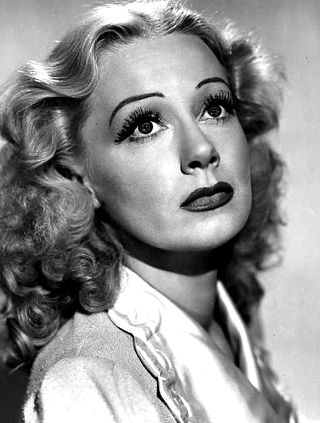
June Havoc was an American actress, dancer, stage director and memoirist.
Golden Boy is a drama by Clifford Odets. The play was initially produced on Broadway by The Group Theatre in 1937. Odets' biggest hit was made into a 1939 film of the same name, starring William Holden in his breakthrough role, and also served as the basis for a 1964 musical with Sammy Davis, Jr.

Philip "Fyvush" Finkel was an American actor known as a star of Yiddish theater and for his role as lawyer Douglas Wambaugh on the television series Picket Fences, for which he earned an Emmy Award for Outstanding Supporting Actor in a Drama Series in 1994. He is also known for his portrayal of Harvey Lipschultz, a crotchety history teacher, on the television series Boston Public.

The Neil Simon Theatre, originally the Alvin Theatre, is a Broadway theater at 250 West 52nd Street in the Theater District of Midtown Manhattan in New York City. Opened in 1927, the theater was designed by Herbert J. Krapp and was built for Alex A. Aarons and Vinton Freedley. The original name was an amalgamation of Aarons's and Freedley's first names; the theater was renamed for playwright Neil Simon in 1983. The Neil Simon has 1,467 seats across two levels and is operated by the Nederlander Organization. Both the facade and the auditorium interior are New York City landmarks.
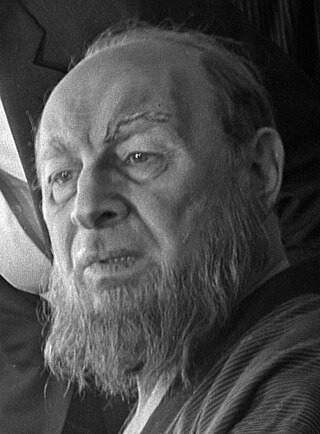
Morris Carnovsky was an American stage and film actor. He was one of the founders of the Group Theatre (1931-1940) in New York City and had a thriving acting career both on Broadway and in films until, in the early 1950s, professional colleagues told the House Un-American Activities Committee that Carnovsky had been a Communist Party member. He was blacklisted and worked less frequently for a few years, but then re-established his acting career, taking on many Shakespearean roles at the Stratford Shakespeare Festival and performing the title roles in college campus productions of King Lear and The Merchant of Venice. Carnovsky's nephew is veteran character actor and longtime "Pathmark Guy" James Karen.

The August Wilson Theatre is a Broadway theater at 245 West 52nd Street in the Theater District of Midtown Manhattan in New York City. Opened in 1925, the theater was designed by C. Howard Crane and Kenneth Franzheim and was built for the Theatre Guild. It is named for Pulitzer Prize-winning playwright August Wilson (1945–2005). The August Wilson has approximately 1,225 seats across two levels and is operated by Jujamcyn Theaters. The facade is a New York City designated landmark.

The Al Hirschfeld Theatre, originally the Martin Beck Theatre, is a Broadway theater at 302 West 45th Street in the Theater District of Midtown Manhattan in New York City. Opened in 1924, it was designed by G. Albert Lansburgh in a Moorish and Byzantine style and was constructed for vaudevillian Martin Beck. It has 1,404 seats across two levels and is operated by Jujamcyn Theaters. Both the facade and the interior are New York City landmarks.

The St. James Theatre, originally Erlanger's Theatre, is a Broadway theater at 246 West 44th Street in the Theater District of Midtown Manhattan in New York City. Opened in 1927, it was designed by Warren and Wetmore in a neo-Georgian style and was constructed for A. L. Erlanger. It has 1,709 seats across three levels and is operated by Jujamcyn Theaters. Both the facade and the auditorium interior are New York City landmarks.
Phoebe Brand was an American actress.

The Nederlander Theatre is a Broadway theater at 208 West 41st Street in the Theater District of Midtown Manhattan in New York City. Opened in 1921, it was designed by William Neil Smith for theatrical operator Walter C. Jordan. It has around 1,235 seats across two levels and is operated by the Nederlander Organization. Since 1980, it has been named for American theater impresario David Tobias Nederlander, father of theatrical producer James M. Nederlander. It is the southernmost Broadway theater in the Theater District.
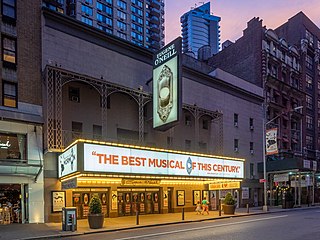
The Eugene O'Neill Theatre, previously the Forrest Theatre and the Coronet Theatre, is a Broadway theater at 230 West 49th Street in the Theater District of Midtown Manhattan in New York City. The theater was designed by Herbert J. Krapp and was constructed for the Shubert brothers. It opened in 1925 as part of a hotel and theater complex named after 19th-century tragedian Edwin Forrest. The modern theater, named in honor of American playwright Eugene O'Neill, has 1,108 seats across two levels and is operated by Jujamcyn Theaters. The auditorium interior is a New York City designated landmark.
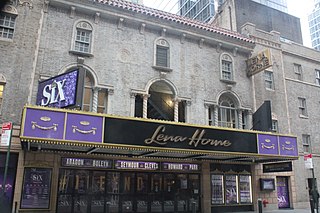
The Lena Horne Theatre is a Broadway theater at 256 West 47th Street in the Theater District of Midtown Manhattan in New York City. Opened in 1926, it was designed by Herbert J. Krapp in a Spanish Revival style and was constructed for Irwin Chanin. It has 1,069 seats across two levels and is operated by the Nederlander Organization. Both the facade and the auditorium interior are New York City landmarks.

Hyman Solomon Kraft, aka Hy Kraft, H.S. Kraft, or Harold Kent, was an American screenwriter, playwright, and theatrical producer.
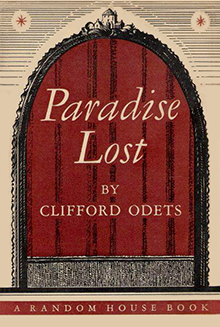
Paradise Lost is a drama by Clifford Odets that takes place in 1932, during the Depression. The play was originally produced on Broadway by the Group Theatre in 1935. It was also filmed for television broadcast in 1971.
The New York Drama Critics' Circle is made up of 20 drama critics from daily newspapers, magazines and wire services based in the New York City metropolitan area. The organization is best known for its annual awards for excellence in theater.
Lamp At Midnight is a play that was written by Barrie Stavis, and first produced in 1947 at New Stages, New York. The play treats the 17th Century Galileo affair, which was a profound conflict between the Roman Catholic Church and Galileo Galilei over the interpretation of his astronomical observations using the newly invented telescope. By coincidence, Bertolt Brecht's play on the same theme, Life of Galileo, opened in New York just a few weeks before Lamp at Midnight. Some critics now consider Galileo to be a masterpiece, but in 1947 the New York Times reviewer, Brooks Atkinson, preferred Lamp at Midnight.
My Sister Eileen is an American comedy stage production, written by Joseph A. Fields and Jerome Chodorov, based on autobiographical short stories by Ruth McKenney. The stories were originally published in The New Yorker and then collected and published as the book My Sister Eileen in 1938.

The Yiddish Theatre District, also called the Jewish Rialto and the Yiddish Realto, was the center of New York City's Yiddish theatre scene in the early 20th century. It was located primarily on Second Avenue, though it extended to Avenue B, between Houston Street and East 14th Street in the East Village in Manhattan. The District hosted performances in Yiddish of Jewish, Shakespearean, classic, and original plays, comedies, operettas, and dramas, as well as vaudeville, burlesque, and musical shows.
Night Music is a 1940 play by Clifford Odets. Written in 1939 and produced by the Group Theatre, the play was a commercial failure, closing after 20 performances.

Village East by Angelika is a movie theater at 189 Second Avenue, on the corner with 12th Street, in the East Village of Manhattan in New York City. Part of the former Yiddish Theatre District, the theater was designed in the Moorish Revival style by Harrison Wiseman and built from 1925 to 1926 by Louis Jaffe. In addition to Yiddish theatre, the theater has hosted off-Broadway shows, burlesque, and movies. Since 1991, it has been operated by Angelika Film Center as a seven-screen multiplex. Both the exterior and interior of the theater are New York City designated landmarks, and the theater is on the National Register of Historic Places.
References
- ↑ "Comedy by Kraft will Open Tonight" (PDF). The New York Times. January 23, 1942. Retrieved April 3, 2015.
- ↑ Atkinson, Brooks (January 24, 1942). "The Play" (PDF). The New York Times. Retrieved April 3, 2015.
- ↑ Rich, Frank (October 26, 1988). "'Cafe Crown,' Bygone World of Yiddish Theater". The New York Times. Retrieved April 3, 2015.
- ↑ Shepard, Richard F. (March 24, 1989). "Jewish Theater Is Making a Comeback". The New York Times. Retrieved April 3, 2015.
- ↑ "'Cafe Crown' Closes". The New York Times. March 28, 1989. Retrieved April 3, 2015.
- ↑ Howard Taubman (April 18, 1964). "Theater: 'Cafe Crown'; Musical Based on Kraft Play at Martin Beck" (PDF). The New York Times.